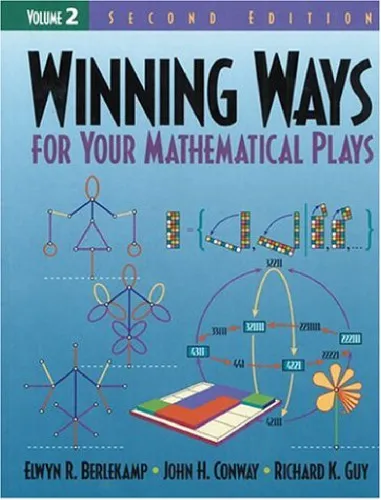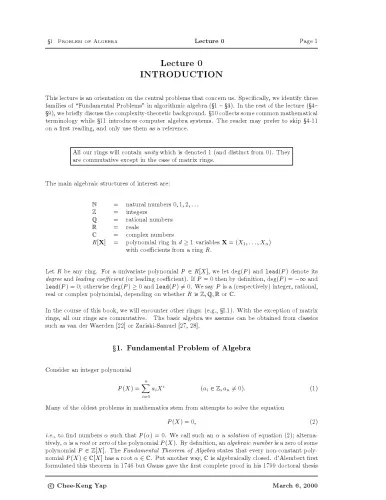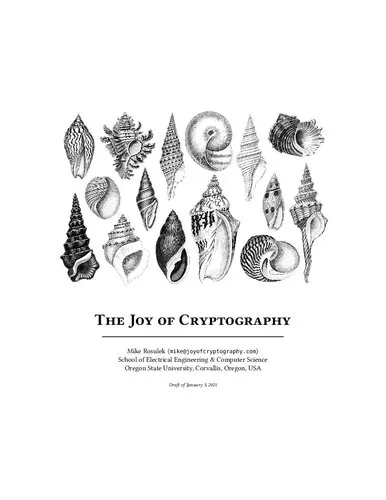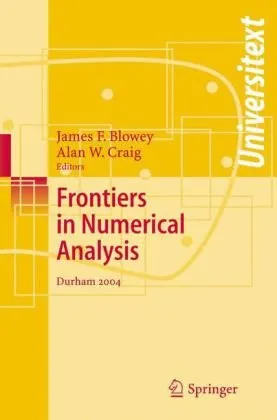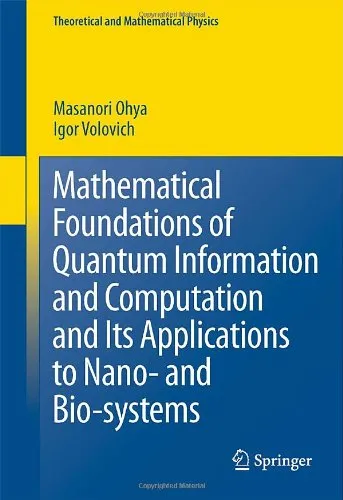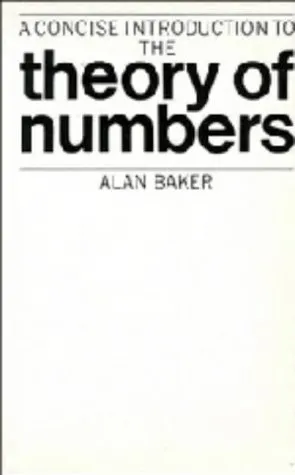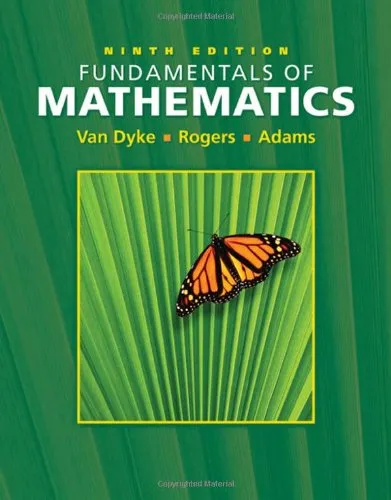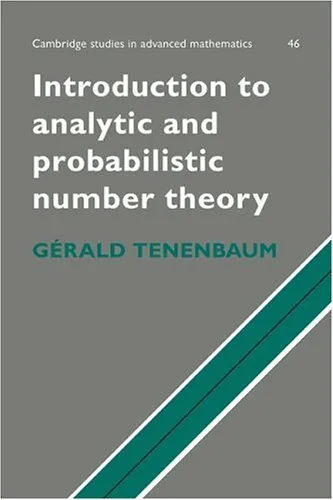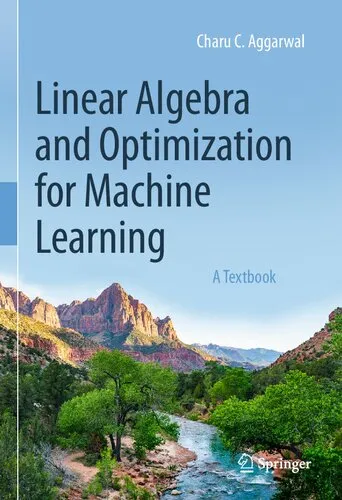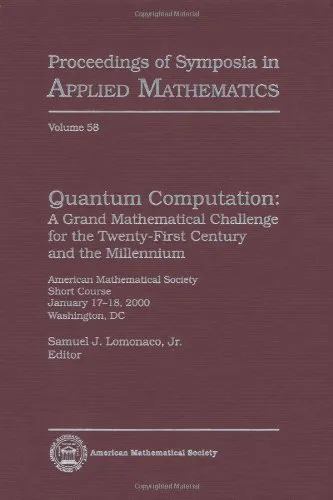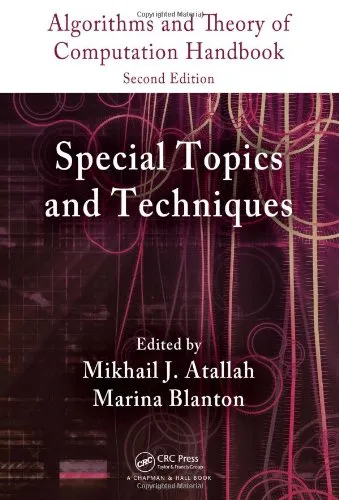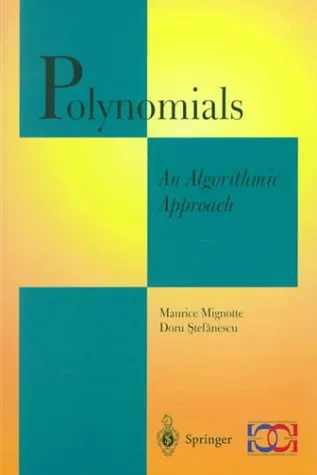Higher Arithmetic. An Algorithmic Introduction to Number Theory
4.0
Reviews from our users

You Can Ask your questions from this book's AI after Login
Each download or ask from book AI costs 2 points. To earn more free points, please visit the Points Guide Page and complete some valuable actions.Related Refrences:
Introduction to Higher Arithmetic: An Algorithmic Introduction to Number Theory
Higher Arithmetic: An Algorithmic Introduction to Number Theory is a profound and elegantly written book by Harold M. Edwards, designed to offer a comprehensive understanding of number theory through an algorithmic lens. This book provides a refreshing take on classical number theory by integrating algorithmic principles into its structure, making it an ideal resource for students, mathematicians, and enthusiasts eager to delve into this rich field. With clarity, rigor, and a focus on computational approaches, the book forges a bridge between traditional mathematics and the evolving world of algorithmic applications.
Unlike many texts in the field, this book guides readers through the interplay of numerical patterns and logic while delivering a clear path toward practical computation. Its unique approach ensures that learners not only grasp theoretical constructs but also witness their functionality in problem-solving contexts. Whether you are a newcomer to number theory or an experienced mathematician, the book invites you to explore the timeless beauty of numbers and algorithms fused together.
Detailed Summary
The book covers core concepts of number theory with a focus on their algorithmic implementation. Starting with foundational topics like divisibility, prime numbers, and the greatest common divisor, it builds a strong base for deeper exploration. Each chapter introduces essential theorems and definitions while demonstrating their practical applications through step-by-step algorithmic procedures. Edwards' narrative style ensures that even abstract or complex ideas—such as continued fractions, quadratic residues, and modular arithmetic—are explained with clarity and precision.
One of the standout features of this book is its continuous emphasis on constructive methods. The author incorporates real-world computational examples, bridging the gap between theory and application. Readers will encounter Fermat's Little Theorem, Euclid's Algorithm, and Diophantine equations, all crafted to illustrate the balance between mathematical beauty and algorithmic utility. Through this framework, the book infuses an appreciation of not only the "why" but also the "how" of number theory.
Later chapters explore topics like cryptographic applications, the structure of number systems, and the distinction between numerical approximations and exact solutions. Pioneering ideas from historical mathematicians like Fermat, Euler, and Gauss are presented alongside modern computational methods, giving readers both a historical perspective and practical insights.
Key Takeaways
- A deep understanding of algorithms and their applications to classical number theory problems.
- Insights into the historical evolution of number theory and its relationship with modern computation.
- Step-by-step solutions to pivotal problems in divisibility, prime numbers, and modular arithmetic.
- The ability to translate mathematical theories into executable algorithms.
- A solid foundation for exploring advanced topics in cryptography, algebra, and pure mathematics.
Famous Quotes from the Book
"Mathematics, at its heart, is not merely about solving problems—it is about finding the beauty and clarity within the patterns that surround us."
"An algorithm is proof brought to life, a demonstration of the power and elegance of a mathematical idea."
"The numerical world is not a chaotic landscape but a tapestry woven with rigor, logic, and precision."
Why This Book Matters
Higher Arithmetic: An Algorithmic Introduction to Number Theory is not merely a collection of theorems and equations—it is a pedagogical masterpiece that redefines how we approach number theory. By emphasizing algorithmic techniques alongside pure mathematical reasoning, the book equips readers with practical tools for modern problem-solving. In today’s world, where computational mathematics intersects with areas like cryptography, data analysis, and machine learning, the lessons in this book are more relevant than ever.
Harold M. Edwards' approach invites readers to think critically about how mathematical ideas are structured and applied. The focus on algorithms ensures that the material resonates not only with pure mathematicians but also with computer scientists and engineers. For educators and learners alike, this book sets a high standard in both content and clarity, fostering a lasting understanding of number theory’s essentials.
In an era dominated by computational advances, Higher Arithmetic arms its readers with the knowledge to link abstract principles with real-world applications. Its contributions to the pedagogy of number theory are invaluable, making it a timeless resource and a benchmark for future studies in the field.
Free Direct Download
You Can Download this book after Login
Accessing books through legal platforms and public libraries not only supports the rights of authors and publishers but also contributes to the sustainability of reading culture. Before downloading, please take a moment to consider these options.
Find this book on other platforms:
WorldCat helps you find books in libraries worldwide.
See ratings, reviews, and discussions on Goodreads.
Find and buy rare or used books on AbeBooks.
1372
بازدید4.0
امتیاز0
نظر98%
رضایتReviews:
4.0
Based on 0 users review
Questions & Answers
Ask questions about this book or help others by answering
No questions yet. Be the first to ask!

